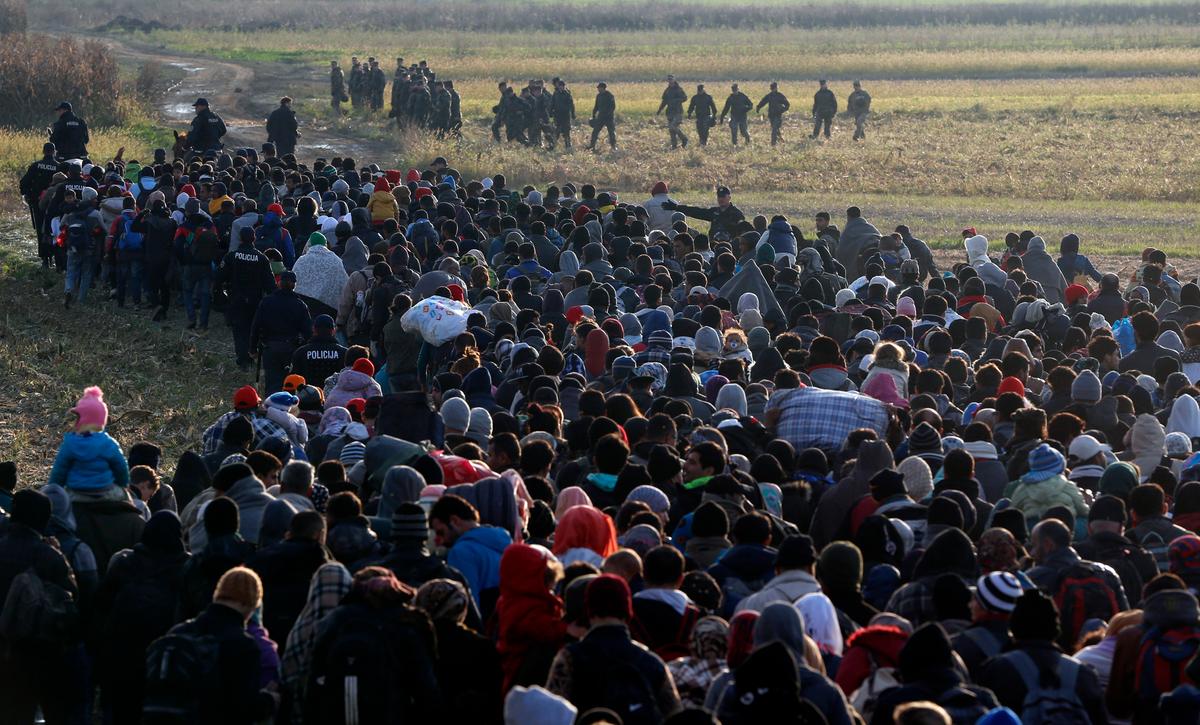BREZICE, Slovenia—After too many days and nights stuck outside in the rain and cold, tempers are fraying among the tens of thousands of migrants trying to get through the Balkans to the heart of Europe.
A fire at the main refugee camp on Slovenia’s border with Croatia destroyed a dozen lime green army-issue tents Wednesday as scores of mostly young male migrants nearby chanted, “Let us go! Let us go!”
While the government said it was still investigating the cause, police at the scene told The Associated Press that migrants had set a stack of UNHCR-supplied blankets deliberately on fire to protest conditions in the camp on the outskirts of Brezice.
Many of those demanding to leave the Slovenian border town for Austria, Germany and other European Union nations to the north had waded the previous night through the Sutla River, which marks the border between Slovenia and Croatia, in frigid conditions made worse by their soaked clothes. Sometimes in the pitch dark, at other times aided by light from a police helicopter’s searchlight, more than 1,000 souls strode chest-deep into the muddy waters on the Croat side and struggled up the muddy embankment into Slovenia.
Many migrants from the Middle East, Asia and Africa expressed bewilderment and disappointment because they had been told as they began their journeys in Turkey that the hard part would end once they reached EU countries like Croatia and Slovenia. Many had expected other countries to permit them free passage to wealthier western countries, particularly Germany, that they hope to make home.
“I am sorry for Europe,” said Ari Omar, an Iraqi, who was resting in a Slovenian pasture a few hundred meters (yards) from the border with Croatia. “We did not think Europe is like this: no respect for refugees, not treating us with dignity. Why is Europe like this?”
More than 21,500 people have crossed that frontier in the five days since Hungary—the previous favored EU entry point for migrants crossing the Balkans—closed its borders with Croatia and forced the human tide further west into Slovenia. This Alpine country of barely 2 million says it cannot cope with the volume of human traffic and is appealing for EU financial and security aid. Lawmakers passed an emergency bill permitting Slovenia’s military to operate more freely along the border, and more than 200 troops were deployed Wednesday in armored personnel carriers at several crossing points and camps.






